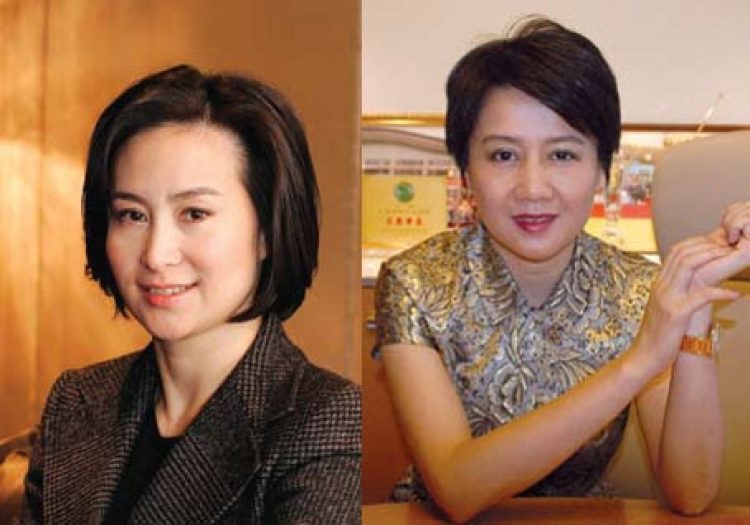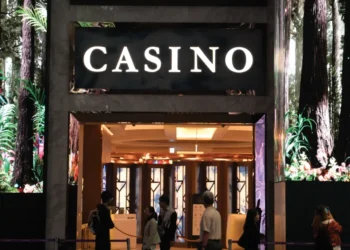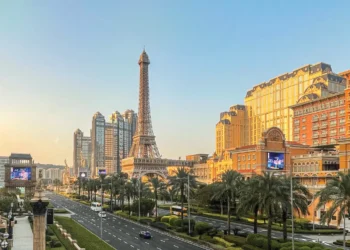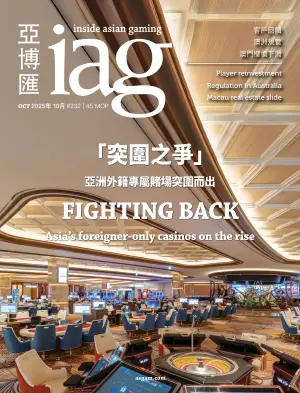How effective would Pansy Ho be as boss of STDM/SJM?
It’s not 100% guaranteed at this stage that Pansy Ho will assume leadership of STDM/SJM. A compromise or figurehead candidate could emerge in a United Nations-style fudge as a way of uniting the warring Ho family factions. The effectiveness question arises, though, not because the STDM/SJM role might clash in US regulators’ minds with Ms Ho’s 50% ownership of MGM Macau. It’s because some Macau insiders suggest she may have to make quite a lot of adjustment to her personal management style if she is to fulfil the STDM/SJM role effectively.
Macau is a place where most business and political deals are done in backrooms and tied up long before they reach the eyes and ears of the media. A key attribute of the top job at STDM has traditionally been the ability to do those backroom deals in private and keep a diplomatic front in public.
If that remains a key attribute for the next person in the STDM hot seat, then Ms Ho can hardly be said to have got off to a flying start. A two month-long battle via the public prints—and rather bizarrely via YouTube—over who should control Dr Ho’s shares in STDM is hardly the kind of thing to build the confidence of the market and of politicians that there will be a smooth and harmonious transition of power within STDM.
To be fair to Ms Ho, the fact her father has four different families by four different women was always going to make the transition difficult, when STDM as it is today is essentially a family business. It didn’t start out that way back in 1962, however. It started out as a four-way partnership between four (unrelated) families, and the shareholdings of the current business reflect those historic roots.
Because Dr Ho personally has never had a majority of the STDM shares, he has spent his career being part diplomat, part corporate hustler. Co-operation or at least co-existence between the shareholders has been important in getting anything done. When faced with an intransigent shareholder wanting her own way—as STDM was for several years in the case of Dr Ho’s sister Winnie Ho and her opposition to certain aspects of the flotation of SJM in Hong Kong—then it required leadership of enormous patience and diplomatic skill to be able to broker a deal. In the case of the IPO, that patient deal had to be brokered at the expense of market opportunity. The amount SJM eventually raised from the delayed flotation in June 2008 was less than half than what analysts had been estimating 18 months earlier. Some in Macau wonder if Pansy Ho has the instincts and people skills to be able to grin and bear such problems for the sake of corporate harmony.
Such diplomatic skills may well be needed by the next head of STDM/SJM, and not just because of family rifts. STDM/SJM is more than just a commercial enterprise. As explained in our February issue, STDM, with its long tradition in the market, is in some senses a commercial proxy for the interests of the Macau government and the central government in Beijing. The continued preeminence of STDM/SJM is really about the maintenance of a Chinese rather than Las Vegan heart beating at the centre of the Macau gaming market. That’s as much a political issue as it is a commercial one.
Dr Ho in his pomp might have been able to charm and persuade his three surviving consorts and the respective children from his four families to toe a unified family line. A Dr Ho pressured by age and illness arguably has a harder job of acting as coherent umpire in the matter of the division or disposal of his STDM shares.
All three factions of the family (wives two and three and their children were allies at the time IAG went to press) and their representatives have been busy briefing the media and spinning on the STDM share issue. The fact that Pansy Ho was recently being portrayed in the Hong Kong media as intransigent and the person responsible for preventing a deal may be partly a sign of the success of other factions in presenting their version of events.
Could Ms Ho’s personality, rather than pure circumstance, be one of the reasons she couldn’t get a backroom deal done on the shares? What we don’t know is how much horse-trading went on behind the scenes before family two and three made its preemptive strike on grabbing control of Dr Ho’s STDM shares in January. The insiders say Pansy Ho’s instinct is often to stick her neck out and lead from the front, rather than getting associates lined up on her side and convincing them it was their idea all along.
Ms Ho may wish to consider reading or re-reading ‘The Art of War’ by Sun Tzu. Her father, Dr Ho, seems to have been an avid student of, and practitioner in, the ideas of that work. His favourite sentence is probably: “The victorious strategist only seeks victory after the victory has been won, whereas he who is destined to defeat first fights and afterwards looks for victory.”
Dr Ho had a reputation for being as tough as old boots in private business dealings—but only to equals, and only in the run up to getting a backroom deal done. He has been very careful in his long career to cultivate a kindly and paternalistic image in public—especially to underlings. In China, that’s important. Word soon gets round if you start to display hubris. And that can end up eroding political support and being bad for business.
Many political analysts suggest the fact Chinese Premier Wen Jiabao spends significant amounts of time kissing babies on their heads and visiting the injured after China’s many natural and manmade disasters is a significant factor in maintaining the popularity and legitimacy of China’s communist regime. He’s known in the popular Chinese press as ‘Grandpa Wen’. That’s not quite as irreverent as it sounds. In Chinese culture, with its emphasis on family bonds, it’s common for unrelated friends or respected people to be given an honorary family title such as ‘uncle’. Dr Ho in his later, mellower years, can be seen in some ways as Macau’s answer to Grandpa Wen. Dr Ho’s version is to reward people in his circle and beyond and be loyal to them not because they might harm his interests if he doesn’t, but because good news travels far and fast—and buys a lot of goodwill and a lot of loyalty in turn. A room full of STDM employees who each get a lai see packet stuffed with money, just because one of Dr Ho’s horses won a race that day, tell their friends and family about that good experience. Employees who witness one of their superiors getting bawled at by a top company official (as has allegedly happened on a number of occasions at other Macau gaming companies, though not MGM Macau) go away and tell a very different story to an awful lot of people.
No one is suggesting Pansy Ho should turn into a Princess Diana-type figure and start hugging AIDS patients if she wants to be STDM boss. Nor is anyone suggesting China could or would ‘dethrone’ Ms Ho if she took the top job at STDM and her particular style didn’t always chime 100% with the views or tastes of China’s leadership. China is changing all the time, in terms of the way business and to some extent politics is conducted. But Chinese culture still places a lot of emphasis on harmony. It’s a very different environment from the purely meritocratic and iconoclastic approach of Western business.
At MGM Macau, Ms Ho is simply a businesswoman (and heiress) who is the 50% owner of a Macau casino. Were she to become head of STDM/SJM, she would be steward not only of a family business, but would be taking on a role that’s one quarter political, one quarter diplomatic, one quarter about being a Chinese national celebrity and only one quarter pure free market business. It may be a question of ‘Cometh the hour, cometh the man’ (or woman). There’s certainly an argument that if anyone in the family is capable of growing into the role, then it’s Pansy Ho. But STDM/SJM is, and probably needs to be, a very different culture from MGM Macau or even Shun Tak, the Hong Kong-listed and Ho family-run shipping and property conglomerate of which Ms Ho is managing director.
From the moment of her birth, Ms Ho will have been fawned over, deferred to and generally treated with kid gloves by outsiders, even if privately her father and mother discouraged the family entourage and immediate circle from doing so. Under such circumstances, it would take an extraordinarily strong character not to have a little bit of imperiousness of manner by the time of reaching adulthood. By contrast, Angela Leong, Dr Ho’s fourth consort, is often portrayed in the Hong Kong media not so much as to the manor born, but more as a gold-digger—the classic archetype of a much younger woman with an eye on the main chance. She’s from a modest family in Guangdong and caught Dr Ho’s eye as a young dancer. It’s interesting to note, however, that she’s known in Macau for generally being very scrupulous and polite in her dealings with underlings. She’s also been scrupulous in cultivating her political connections, and is a two-term member of Macau’s Legislative Assembly. Those abilities to nurture her public and private image in Macau could turn out to be her greatest asset, and Pansy Ho’s greatest threat. That threat is not so much because Ms Leong might trump her to the top job at STDM, but she might trump Pansy Ho to the hearts and minds of Macau people. That’s a much more dangerous and insidious kind of opposition.



































